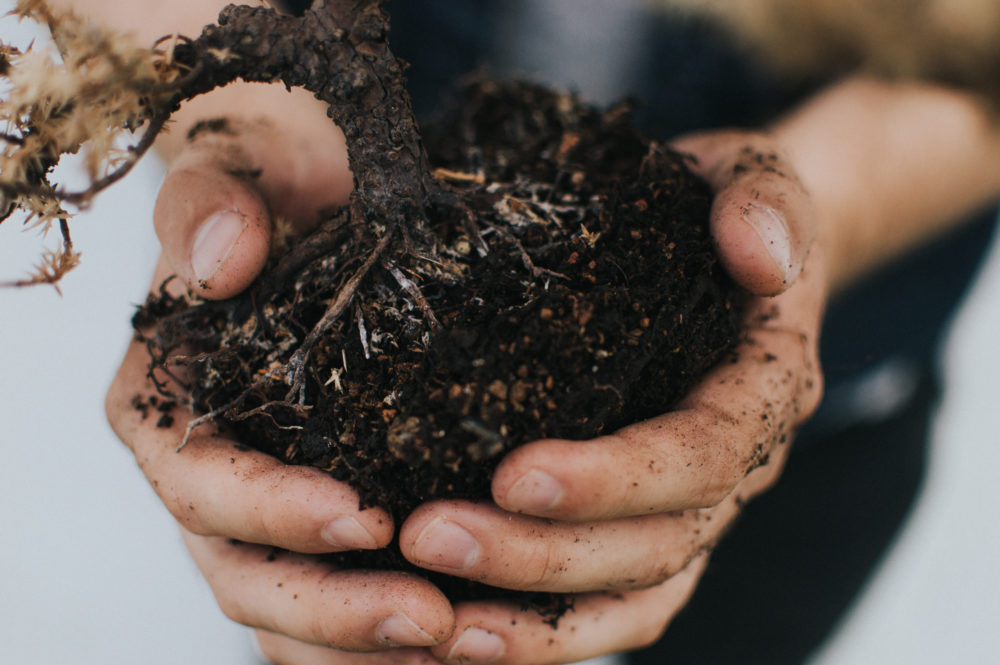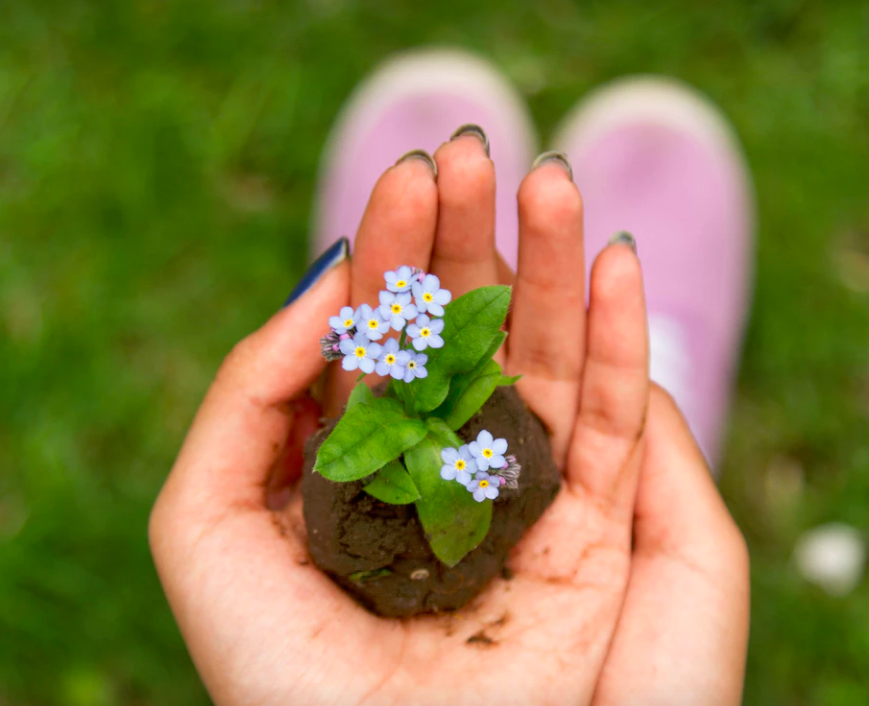
It’s time to get dirty!
I know what you’re all thinking. And while that might just be your solution, today we’re talking about literally getting your hands dirty as a means of mood-boosting goodness. There is an immense benefit to digging through the soil, and it’s called Mycobacterium vaccae.
Before we get to that though, let’s rewind for a second and take a look at depression. Depression is one of those topics that unfortunately is still seen as taboo. Like any mental health condition, it’s not taken as seriously as it should be and is vastly misunderstood. It can be caused by so many things and last anywhere from a couple weeks to several years. Here in the UK, 1 in 4 people will experience mental health issues each year. I am convinced that statistic should be higher, though, judging by the conversations I have on a daily basis.
Depression is a debilitating condition, but educating yourself and looking for creative solutions can be your savior. Knowing how your brain works can offer immense relief through understanding the science and realizing that no, you’re not going insane. And as for a creative solution? Well, we’ll get to that.
Today we’re looking at serotonin and its role in mood regulation. It’s been widely shown that the brain tissues of depressed people exhibit lower levels of serotonin metabolites compared to those who do not report any negative mental health effects. Serotonin is a neurotransmitter, meaning it allows signals to travel between nerves. You can think of it acting like a small bridge in the brain wherever it is found, enabling important messages to get from A to B. It’s actually also found in other parts of the body, too.
Serotonin is produced in the brain and intestines. However, it cannot cross the blood-brain barrier and so serotonin used by the brain must be produced by the brain. That made in the intestine assists in healthy bowel function, so it’s pretty important that it hangs around there. But back to the brain. If we know that serotonin used by the brain must also be produced within the brain, it’s important we ensure that supply stays high enough to enable healthy functioning.
There are many ways of boosting serotonin. These range from light treatment to diet and exercise. But how about our friendly little microbe, Mycobacterium vaccae as an added bonus? It may sound utterly bizarre, but this microscopic dirt-dweller has been shown to boost serotonin levels. Research out of Bristol University found that mice treated with M. vaccae exhibited higher activity in brain neurons responsible for serotonin production. Treated subjects displayed less anxious behavior compared to control mice and navigated their test maze faster. So as well as the mood-boosting benefits stimulated by M. vaccae, these bacteria also added to how well the mice could learn about their surroundings.
The great news about M. vaccae is that it’s dirt common (I’m sorry, I had to throw that one in there) and therefore easy for everyone to have access to. You don’t need to buy any expensive products or seek out specialist help. So, if you’re wondering how you can get a little boost from the soil, it’s really simple: get a little organic! Here are 5 simple ideas to get yourself some quality time with nature’s friendliest microbe:
- Take a walk barefoot around your backyard or in a local park.
- Try growing your own vegetables.
- Take part in a community garden, offering your help and getting lots back in return.
- Start upping the quantity of organic vegetables that you’re consuming as it can make a world of difference.
- Consider camping for your next short break away.

It goes without saying that the more time you spend getting dirty, the more you’ll reap the benefits of these mood-boosting bacteria. There is a bit of debate over the role serotonin plays in depression. Specifically, whether depression causes a decrease in serotonin or whether low levels of serotonin can lead to depression. In my own experience, many factors can lead to a mood slump, but many things can also help. Getting outside and within nature or consuming more organically-grown vegetables subjects you to our trusty friend, M. vaccae, but also gets you fresh air, exercise, and an opportunity to be mindful. It’s a great alternative to those not wanting to take medication, but feeling stuck and in need of some help. It’s a place to start.
Have you experienced the mood-boosting benefits of getting back in touch with nature through gardening or running barefoot in the park? What’s your favorite outdoor activity?
Also by Kat: 5 Life-Changers that Won’t Cost a Dime
Related: How to Start Again After Depression
5 Surprising Ways Houseplants Will Heal Your Burnout, According to Science
Get more like this—Subscribe to our daily inspirational newsletter for exclusive content!
__
Photo: Unsplash




